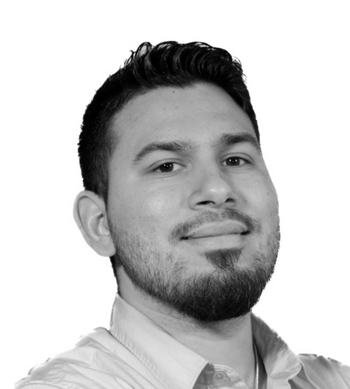This is how 10 Catholic universities deviate from Church teachings
Campus Reform covers church-affiliated higher education institutions across America.
Many Catholic institutions do not completely adhere to religious doctrine.
Campus Reform recently reported on the Christian universities that promote abortion providers. This list contained a significant number of Catholic institutions.
The Catholic Church’s core doctrines are enumerated in the Catechism.
As the United States Conference of Catholic Bishops explains on its website, the Church does take positions on a number of issues. For example, homosexuality and abortion go against Catholic teachings.
However, Catholic higher education institutions promote, sponsor, or endorse programming, clubs, or activities that contradict these stances.
Below is a rundown of how 10 of the nation’s largest Catholic colleges and universities, based on student population, deviate from Church teachings.
1. DePaul University
DePaul University, located in Chicago, has approximately 29,000 students.
In 2016, DePaul told a student organization that it could not display “Unborn Lives Matter” poster, Inside Higher Ed reported at the time.
The university’s LGBTQIA Resource Center hosts events that include LGBT Welcome Reception, Annual Drag Show, and Queer Halloween.
On its website, DePaul has a “Statement of Support for the LGBTQ Community” that states, “An essential principle of advocacy of the LGBTQ community, and one that we embrace together, is that love is love – and love is not a sin.”
2. St. John’s University
St. John’s University, located in New York City, has around 22,800 students.
Rev. Bernard M. Tracey, C.M., the university’s executive vice president of ministry, has publicly affirmed the university’s “continued support for the LGBTQ+ community.”
The school also supports preferred names, all-gender restroom locations, pronouns, and safe zone training, according to its website.
3. Georgetown University
Georgetown University, in Washington D.C, enrolls approximately 21,400 students.
As of 2020, Georgetown was selected as the “Best College for LGBTQ+ students” by Campus Pride and Best Colleges.
Georgetown’s “Trans, Non-Binary, and Gender Non-Conforming Resource Guide” outlines policies concerning housing, bathroom, and locker room accommodations based on gender identity and expression.
The “Inclusive Language for Syllabi and Inclusive Pedagogy” asks faculty to “foster inclusive classrooms” by “avoiding language that implies or reinforces binary genders.”
4. St. Louis University
St. Louis University, located in Missouri, has around 20,100 students.
The university’s LGBTQIA* Resources webpage states that SLU is “committed to creating and supporting a safe, inclusive environment for all of our students” including the “need to validate and affirm all aspects of an individual’s identity.”
The website provides a link for “Accommodations for Transgender, Gender Nonconforming and Gender Diverse Students” to provide a “housing option that aligns with their self-identity.”
5. Loyola University Chicago
Loyola University Chicago has around 18,000 students.
LUC’s LGBTQIA Initiatives aim to provide “spaces and programs…to validate and affirm all orientations, gender identities, gender expressions, lack thereof, or combination of any of those social identities.”
University-sponsored programs pertaining to the LGBTQIA+ community include Q-Cafe, Q-Films, and Q-Studies.
Family restrooms and single-sex stalls will be designated as unisex restrooms for all students, regardless of the signage.
6. Fordham University
Fordham University, located in New York City, has approximately 17,500 students.
“On a case-by-case basis,” students are assigned housing “that aligns with their gender self-identity.” Also, the university has designated all single-occupancy bathrooms as all-gender restrooms.
The university’s LGBTQ Resources hosts “events and programs on campus that educates the campus community and raises awareness about the experiences of Lesbian, Gay, Bisexual, Transgender, Questioning, and Ally members of the Fordham community.”
Fordham’s “Required and Suggested Syllabus Language” includes guidance for where students can “request their chosen name and pronoun be used by the professor during class and other interactions.”
7. Boston College
Boston College, located in Boston, has around 15,600 students.
The LGBT@BC is an association comprising “faculty, administrators, and staff committed to serving as a resource providing support and advocating for the LGBTQ+ community at BC.”
The organization’s mission is to serve “as a resource to foster relationships…within our diverse community,” with a focus on promoting “education about topics related to gender identity and sexual orientation.”
Boston College has sponsored events, including Transgender 101 with Renee Manning, Pronoun Day, Love, Pride & Poetry: A Queer Crafty Social, and Intersectional Anti-Racism Work within LGBT@BC Community.
8. University of Dayton
The University of Dayton is located in Ohio and enrolls around 13,000 students.
The Brooks Center LGBTQ+ Student Services has a mission to “foster a more welcoming campus community” for “students who identify as Lesbian, Gay, Bisexual, Transgender, and Queer (LGBTQ+).”
Students can participate in the Q*munity Leaders program and the Ally+ workshop, aimed at teaching “about LGBTQ+ identities and experiences” and “enhancing the campus and local community’s understanding of gender and sexuality,” respectively.
The University of Dayton provides housing accommodations for transgender students, single-occupant restrooms across campus, and a chosen name policy.
9. Regis University
Regis University is located in Colorado and enrolls around 12,800 students.
The university sponsors an affinity group called Queer Student Alliance, which works to “create an environment that helps students learn about queerness” while also working to “foster a queer community for queer students where they can fully express their whole identity.”
Additionally, Regis has established inclusivity requirements for classes, such as “avoiding the gender binary” and “call[ing] out heteronormativity and gender essentialism in textbook examples.”
Other notable requirements include an emphasis on incorporating LGBTQ-related texts into class curricula.
10. Notre Dame University
Notre Dame University, located in Indiana, has around 12,800 students.
The university’s Gender Relations Center (GRC) website states that it “designs and implements programs about healthy relationships, gender, and sexuality consistent with the Catholic character of the University.”
Previously sponsored events include LGBTQ Trivia Night, LGBTQ History Month, and Trans Day of Remembrance. LGBT trainings and peer mentor programs are also offered by LGBT & Allies at the GRC.
According to the Faculty handbook, all members of the academic community are required to use “respectful and gender-inclusive language.”
Campus Reform reached out to each university for comment.

